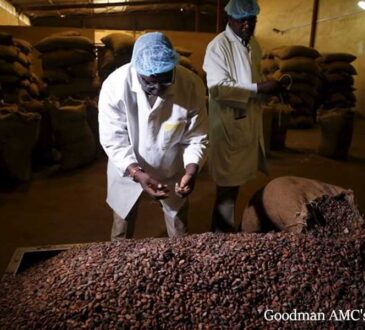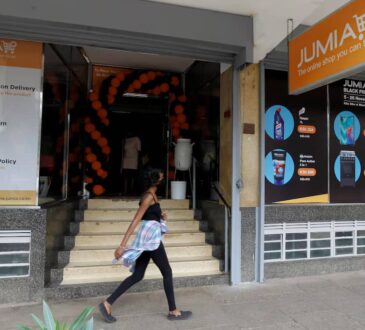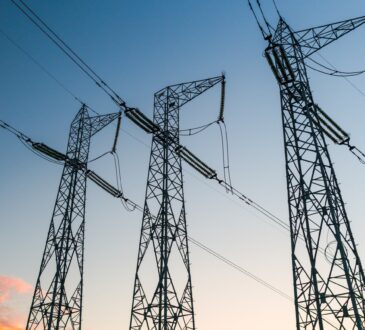
Transformative change is underway in the African automotive industry as trade begins under the African Continental Free Trade Area (AfCFTA), a new report by the World Economic Forum has indicated.
The continent’s auto industry, valued at $30.44 billion in 2021, is expected to grow to $42.06 billion by 2027 — a nearly 40% increase in value.
According to the report titled “a New Era for Global Business and Investment in Africa”, much of this growth can be serviced by local companies within the newly established free trade area.
Under the AfCFTA, over 1.3 billion people will be connected into a single market. For the automotive industry, that’s a significant opportunity.
International companies have found success in the automotive industry by partnering with African countries, signaling that the automotive sector is ripe for new and increased investment strengthened by the AfCFTA.
Across the continent, there is an average annual demand for 2.4 million motor cars and 300,000 commercial vehicles. This domestic demand — which is rising due to the continent-wide increase in disposable income, strong growth of the middle class and rapid urbanisation — is currently being met primarily by imported used vehicles.
However, domestic production has also been growing by an average of 7% annually over the past few years. Today, Morocco and South Africa are leading the way as major players in the automotive sector, making up 80% of African exports, with Algeria also experiencing rapid growth.
The AfCFTA unlocks several opportunities for African and global businesses in the automotive industry to seize, building upon strong foundations in a new era of frictionless African trade.
African automotive manufacturers will benefit from all the advantages of economies of scale; essential for the competitive manufacturing of automotives.
Reduced tariffs across the continent for inputs like aluminum from Mozambique or rubber in Cote d’Ivoire will mean the African industry as a whole becomes more dynamic.
The AfCFTA’s rules of origin will also help set common thresholds for value-added levels, and if these are progressively harmonised across regional communities, these more general and co-equal rules will help stimulate trade.
The continent’s leadership is actively working towards improving the investment environment for the automotive sector specifically. There is significant political will by African governments and private sector players to develop automotive regional value chains because of the sector’s historic contribution to industrialisation.
Afreximbank, for example, and the African Association of Automotive Manufacturers are working together to support the industry by helping harmonise automotive standards, developing a focused training programme for the public and private sectors and providing financing to industry players across the value chain, with Afreximbank committing $1 billion to the industry through direct financing and partnerships.
Sustainability and the global fight against climate change also stand to benefit from the new trade area. Africa could be a key region for promoting sustainable mobility by harnessing renewable energy as demand for electric vehicles and motor vehicles grows.
Electric vehicles currently make up less than 1% of sales in South Africa, but demand is growing across the continent as some of Africa’s main trading partners have banned internal combustion engine vehicle sales, effective as early as 2035. Already, there are pilot projects for sustainable vehicles in Rwanda, Egypt and South Africa, and e-mobility startups have emerged across the continent.
Africa has a great wealth of the natural resources that are key raw materials for modern vehicles, and several countries have their own procurement markets for materials such as copper, platinum, cobalt, bauxite and lithium — essential materials for the suite of new technologies required to reach net-zero. There is also a huge market for motorcycles in Africa — especially in west, east and north Africa — as well as electric two-wheelers, meaning more opportunities for using domestically produced inputs in new markets by leveraging AfCFTA preferences.
Case study: Volkswagen’s success
German auto giant Volkswagen, already a key player on the continent, has recognised the potential of the AfCFTA to catalyse local production of automotives and meet local demand.
To date, the company has successfully established local assembly operations in Kenya, Rwanda and Ghana as well as two wholly-owned subsidiaries in Rwanda and Ghana.
The company attributes its success in Africa thus far to its collaboration with African governments in developing and implementing automotive policies in their respective countries, including South Africa, Morocco, Tunisia, Ghana, Egypt and Kenya.
Volkswagen recognises that the increase in local manufacturing requires different levels of investment and depends on consistent, enabling industrial policies with access to local markets — which it sees as a major benefit of the AfCFTA.
The key industry trends reviewed here and the opportunities opening up as a result of the AfCFTA, coupled with Volkswagen’s experience of success, provide a powerful case for new investors to move into the automotive sector and thus help drive and transform economies across the continent.







